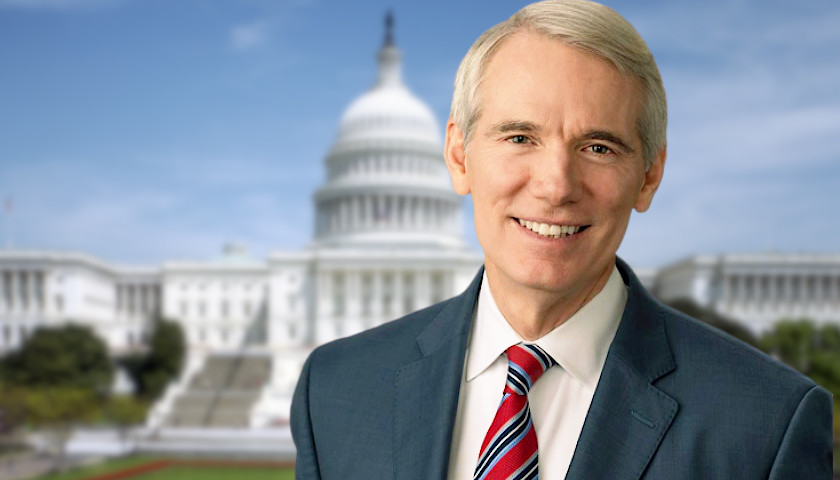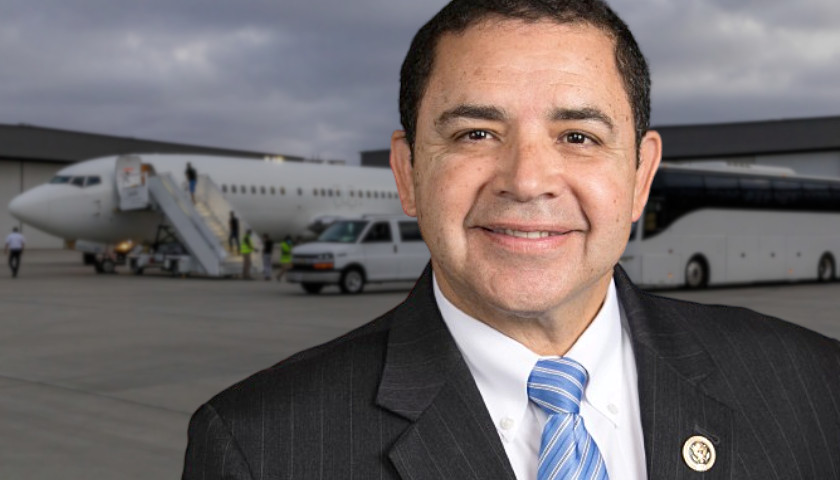COLUMBUS, Ohio – U.S. Senator Rob Portman (R-OH) hopes to get the $550 billion Infrastructure & Investment Act legislation before the full Senate next week after the proposed bipartisan legislation recently cleared the committee on a 20-0 vote.
Portman speaking on CNBC’s Squawk Box show on Tuesday, lauded the legislation as a way to boost economic productivity while avoiding a rollback of the Trump administration’s signature tax cuts from 2017.
“It’s never been a partisan issue to help fix up our roads and bridges and our rail tracks and our ports,” said Portman, a key Republican architect of the legislation. “And broadband is very bipartisan … because we had so many areas of the country where people just don’t have access to Wi-Fi, high-speed or low-speed.”
He said the legislation makes sense in that, as a capital investment, it supports long-term economic benefits.
“Every economic analysis we’ve seen says the same thing, which is if we do this over the next five, 10, 15, 20, 30, 40 years, it’s going to help our economy in significant ways because it’ll make the economy more efficient, it makes us more productive as a country …”
Projects focus on roads, bridges, and other transportation projects, as well as the expansion of broadband into underserved communities.
He said the legislation is more targeted to core infrastructure than a $2.65 trillion plan President Joe Biden proposed earlier this year and the $1.5 trillion proposal Trump proposed a year ago. Still, Portman credits Trump for understanding the importance of infrastructure and its role in highlighting the need for a federal role in addressing the issue.
“Trump deserves credit for stirring up the debate on the Republican side,” Portman said, “and getting people to think about the importance of infrastructure.”
That said, Trump lambasted the bipartisan bill in late July, saying in a July 27 story in The Ohio Star that GOP Senators “want a deal at any cost” to demonstrate their bipartisanship.
Portman remains opposed to a $3.5 trillion plan from Democrats tying a much more expensive infrastructure investment with a cornucopia of federal social, educational, and other “human infrastructure” programs favored by House Speaker Nancy Pelosi and progressive House members. Pelosi has threatened to push that legislation through using the budget reconciliation process that would prevent GOP Senators from blocking it through the filibuster.
A proposed Digital Equity Act that Portman has co-sponsored has made it into the Democrats’ broader bill, according to an Aug. 3 story published by The Star.
Portman stressed the capital investment in infrastructure will not have the inflationary effect that the proposal will cause along as has other recent federal government spending on programs and cash giveaways Democrats pushed through earlier this year.
“The $3.5 trillion is really a bad, bad idea, both in terms of the spending and the taxes,” said Portman on the morning news program. “In fact, most of us on the Republican side, I think, share the same belief, which is that we kind of like this one and we don’t like that one at all.”
Portman does expect some amendments to the legislation this week but vowed to keep earmarks, or pet funding projects by individual senators and House members, out of the bill.
Among those who have scored changes to the legislation was Senator Sherrod Brown (D-Ohio).
Brown announced Monday his proposed Bridge Investment Act proposal and Build America Buy America Act proposal both made it into the infrastructure legislation. The Bridge Investment Act puts a focus on rebuilding significant bridges, such as the Brent Spence Bridge carrying Interstates 71 and 75 over the Ohio River as it connects Cincinnati and Northern Kentucky. The Build America legislation is designed to favor American steel producers.
“Rebuilding Ohio bridges and infrastructure with American-made steel and products will create jobs and make our communities more competitive,” Brown said in a Monday news release. “Ohio has more than 3,200 bridges that need to be repaired or replaced to make them safer and reduce congestion – and Ohio communities can’t shoulder this cost alone.”
– – –
Brian Ball is a reporter for The Ohio Star and The Star News Network. Send tips to bball@theohiostar.com.





